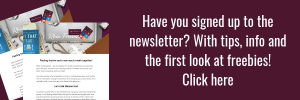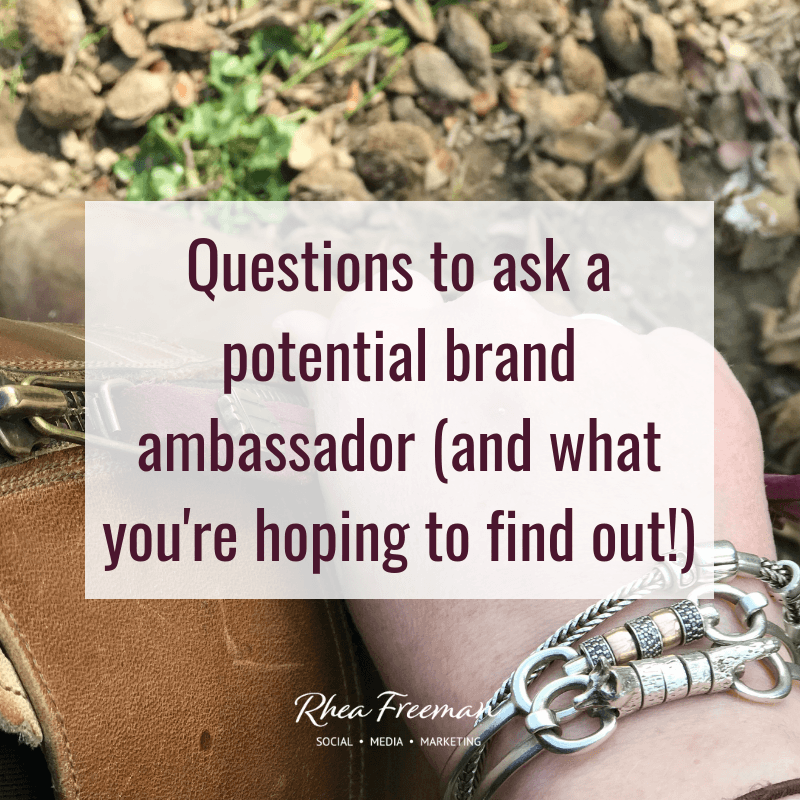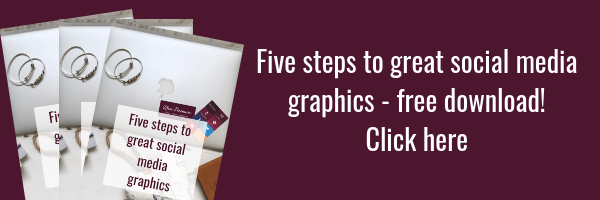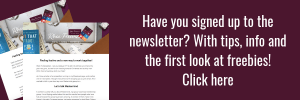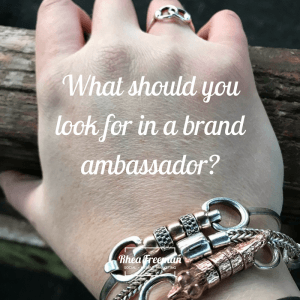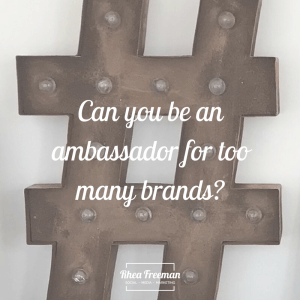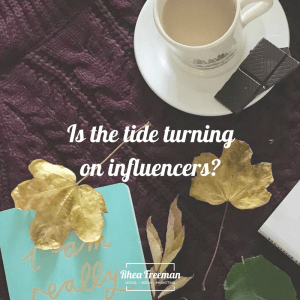This is a juicy one! In this blog (and podcast!) I want to talk to you about things that brands can do to assess a brand ambassador and sponsored rider before they even talk to them. Because you need to do this. If you’re looking for people to align with your brand, you need to put the leg work in. These people, if selected to be a brand ambassador or sponsored rider, will be a flag waver for you. And you NEED to make sure that their ethos fits well with yours.
Although this podcast is recorded from the point of view of what brands should look for, it’s really helpful for potential brand ambassadors and sponsored riders too. Because if you know what brands are looking for, you can check in on your own platforms and see what you have nailed and what you can improve.
It can be a really anxious moment when you decide to invest in a rider, whether as a brand ambassador with product or even on a monetary level. What if you’ve picked the wrong person? What if it all goes wrong? The thing is, people aren’t always predictable, but following the tips below should, hopefully, provide you with some ideas to look at.
What brands can to do assess a brand ambassador
In this episode of the Small & Supercharged Podcast, I chat about what brands can do to assess brand ambassadors and sponsored riders. I’ve broken this up into various headings below… so each bullet point covers one thing to look at…
- What products do they use? When you’re looking at potential riders, look at what products they use. Do they use your products? Do you think they know about your products? Does the style of the product that they use look like yours? To me, if someone has bought one of your products and they’ve spent their own money on it, that’s really positive. If they haven’t, this doesn’t mean it’s a no, but it means that there might be more work to do there. In a perfect world they’d be using your products and would already be a raving fan. But I’m a realist, so we need to assess a few more things beyond whether or not the just use your product.
- Attitude. This is an essential one for me. And behaviour is very closely connected. A brand ambassador is your flag waver and you need to make sure that your attitudes and character traits align – if they don’t, this isn’t a good thing. A bad attitude, to me, is a big no. It could do your brand a lot more harm than good. Obviously behaviour is slightly different. Behaviour can be things like drinking (and how that’s documented) – and it’s not necessarily having one drink – it’s drinking to excess and then documenting it social media… there are very few brands that this will align with. If you’re assessing a brand ambassador and they’re acting in a way that is at odds with your brand, put a cross by the name. It’s not worth it. You’ll be doing crisis management every day. And no one wants more work from someone who’s meant to be making their lives easier!
- Following and engagement. And out of the two, I’ll take engagement every day of the week. If you’re looking to get conversions and sales, engagement is the thing that will do it. And if you’re not looking to increase your brand presence online (on whatever social media platform), then maybe brand ambassadors and sponsored riders aren’t for you. It’s really easy to assess engagement – just look at what people do on their social media platforms. When people ask questions connected to a post – do they respond? Of course, massive accounts aren’t going to have the time to comment on every single comment, but the best accounts do spend some time doing this. I would never dismiss someone with moderate following if their engagement was good.
- Ideas. We love ideas. As brands, we want brand ambassadors to come to us with ideas. Ideas we can help them with so both of us benefit. I’m lucky in that I work with some incredible brand ambassadors that do this. The people you choose to be brand ambassadors or sponsored riders are building their personal brand too, and the whole point is that you’re working WITH them so you’re supporting each other on your journey. It’s not the job of the brand or the PR to come up with all the ideas for the brand ambassadors. It’s really easy to assess this by looking at what the people you’re considering have done.
- How they present their content and content quality. If you look at the content across their different platforms, look at everything. Look at the quality of their images, the spelling mistakes, how videos are edited, etc. if the quality of the content isn’t good, it’s not going to engage their audience and could also reflect on your brand quite badly. If your equestrian brand ambassador is creating good content for themselves, to grow their own personal brand, there’s a much better chance that they’re going to do this for you. Making sure that the content is presented in the most native way too is a big one. If they’re not pushing the final bit and making it native on each platform, that’s something that I look at as well. You do expect people to learn and develop as they go, but need to make sure they have one really strong place where they have skill.
- Which platforms do they operate on? Most people tend to have specific platforms that they’re stronger on, and it’s worth assessing these in line with your target market. If your target market are businesses and your potential person is active on LinkedIn, that’s really good. It doesn’t mean it’s a no if they’re better on others, but it’s worth being aware.
- Let’s talk about other sponsors. How they engage with other sponsors and how many other sponsors they have. It can be good to work with people who already have sponsors because you can see what they’re already doing for these people. However, if you’re working with a rider who has a list of sponsors as long as your arm, how much air time do you think you’re getting? Look at overlaps too – if there’s a conflict of interest that might not to good for you either.
- Consistency. I know. I’m a broken record, but consistency is so, so important. Being consistent is the way to win. They need to show up on social media consistently if that’s how they’re promoting your brand. They just won’t get the traction otherwise. For you or for them.
The way that sponsorships have changed since social media has been huge. Previously, a rider would be more likely to get sponsorship if he was excelling at his sport. Nowadays, that’s secondary if you’re looking at promotion on a day to day basis. There are some INCREDIBLE accounts out there that are run by amateur riders – and they’re genuinely wiping the floor with many professional rider accounts who have no engagement.
So there you have it – a list of ‘things’ brands can do to assess a brand ambassador – I really hope it helped, whether you’re the brand or the potential brand ambassador or sponsored rider.

